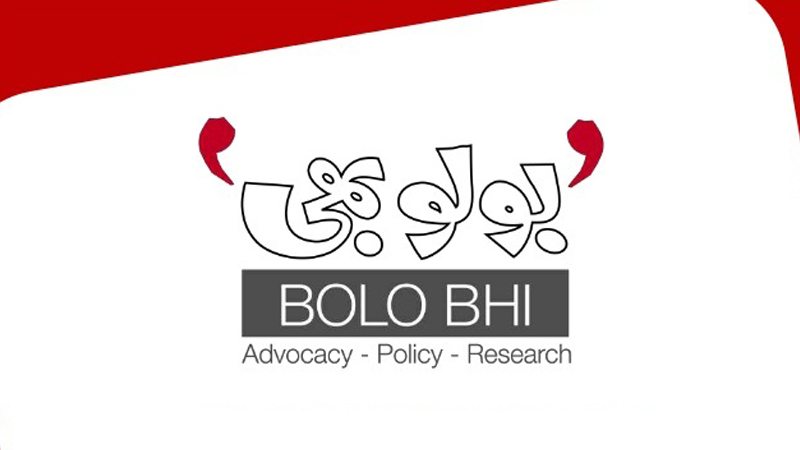LAHORE: Bolo Bhi, an organisation working for civil rights, submitted its arguments for its ongoing case in Islamabad High Court on Monday against PTA and Government of Pakistan.
In December 2014, Bolo Bhi filed a petition against Inter-Ministerial Committee for the Evaluation of Websites (IMCEW), Ministry of Information and Telecom (MOITT) and Pakistan Telecommunications Authority (PTA). Bolo Bhi contested the legality and constitutionality of IMCEW and the powers that the government exercises through MOITT. It also questioned PTA’s power to block online content.
It was found during the case proceedings that IMCEW derives its authority from an executive notification which was issued by the Prime Minister in 2006 and that PTA Act did not have any provision to allow it to block content on the internet. Bolo Bhi then obtained a stay order through which IMCEW and PTA were restricted from issuing further directions without the court’s approval. The court also directed the respondents in the case to submit details of the websites blocked over the course of three years before the court’s order.
Following that, representatives of the Ministry cited the presence of ‘terrorist content’ online and the urgency to take it down as the primary reason for not being able to wait for the court’s approval. After that, the court modified Bolo Bhi’s stay order to allow PTA to act without the court’s approval. The only condition was that PTA had to submit a report explaining the reason.
Over the course of hearings, the government admitted that IMCEW was a recommendatory body. In March 2015, they submitted before the court a notification by the Prime Minister, de-notifying the IMCEW. This was accompanied with the announcement that the PTA was being given content management powers. In December 2015, the Telecommunications Policy 2015 was issued in which content management powers were given to the PTA. In February 2016, Bolo Bhi amended its plaint to challenge Section 9.8 of the Telecommunications Policy titled ‘Content Management’.
During this time, the court was informed that a cybercrime bill was being introduced. In August 2016, the Prevention of Electronic Crimes Act (PECA) came into effect with content management powers given to the PTA under Section 37. The Ministry maintained the petition had become infructuous as a result. Months later, the court instructed Bolo Bhi to file a written submission which was filed in November 2017.
Although the PTA was authorized to block content under PECA, Bolo Bhi is still skeptical about the arbitrary and unlawful exercising of such powers to issue directions and block content by and wants to be settled. Even more so now that the Ministry of Interior has also taken it upon itself to instruct the Federal Investigation Agency (FIA) to monitor and act against content on social media. While Section 37 of PECA was introduced to authorise the PTA to manage content, something Bolo Bhi still suspects to be in violation of the constitution, this authorization does not extend to MOITT or any branch of the government of Pakistan. Bolo Bhi considers the exercising of such powers both assumptive and unlawful.










.jpg)



